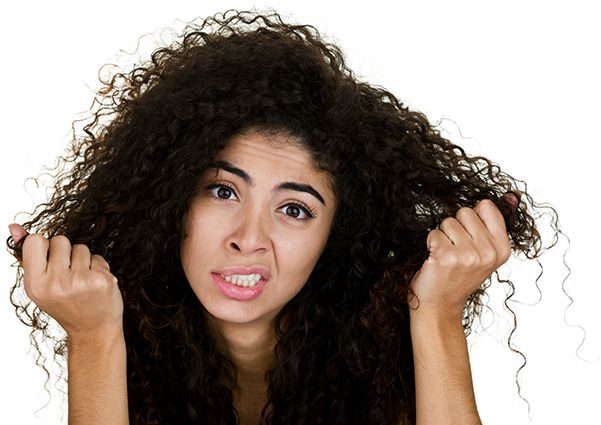
The scalp is the foundation for healthy hair. It is where the growth takes place and where natural oils are distributed from to properly moisturize your strands. When you have scalp problems, it can feel and look awful. The problem is that many people assume all scalp issues are the same in nature, when they are not.
When you have a dry, itchy scalp, you may make the assumption that it’s dandruff each time. However, there are many reasons your scalp could be having these issues, and if your assumption is wrong, you could be missing out on a treatment that would help. Many curlies often ask, “What is the difference between dandruff and a skin allergy?” Let’s look at the key factors to take notice of, and how to best treat them.
So, what is the difference between dandruff and a skin allergy?
You might be a little more familiar with dandruff since it is more common than an actual skin allergy. Dandruff leaves behind yellow flakes and makes your scalp feel dry and itchy. If left untreated, it will continue on this path and will eventually affect your hair health with symptoms like limp hair, irritated scalp, and dry scalp.
In contrast to this, a skin allergy tends to be more severe. Skin allergies will often be painful and look like a rash with raised, red bumps and maybe even blisters depending on the severity of the reaction. This is not to say that an allergic reaction is always this extreme. An allergic reaction can display itself as dryness and flakes, but the main difference is that there will be more discomfort than what is typically associated with dandruff.
The best way to know if it is an allergy is to pay attention to your symptoms. You should also consider if you have recently introduced any new products into your hair regimen that may be the cause of the reaction. If you have started a new product and are seeing rash-like irritation, discontinue the product to see if that makes a difference in your scalp health.
Another concern about dandruff versus skin allergies is that many people will mistakenly confuse dry scalp with dandruff. They assume that if their scalp is dry without flakes, it is still dandruff.
Dandruff’s main characteristics are the flakes of dead skin. If you incorrectly assume you have dandruff and you load up on dandruff products, you may end up making your dry scalp irritated. In fact, even an oily scalp can get dandruff. While many people think of dandruff as a dryness problem, it is actually more closely related to excessive oil production and other factors. According to an article in Everyday Health, “It is usually due to an overgrowth of harmless yeast,”explains Jessica Wu, M.D., a Los Angeles dermatologist and assistant clinical professor of dermatology at the University of Southern California Medical School.
In some people, the yeast starts to feed on the excess oil and dead skin cells on the scalp, causing the skin cells to shed more frequently and clump into flakes.” It is important to remember dry scalp and dandruff are two separate things.
When it comes to treating dandruff or dry scalp, it is best to watch for flakes and then proceed accordingly. If your symptoms continue it is recommended that you consult with a dermatologist, doctor, or even your hair stylist about your dandruff concerns to find the right solution.
Typically, an over the counter shampoo and treatment may be enough, but if it is severe, you may need to see your doctor because it might be an underlying medical condition.
